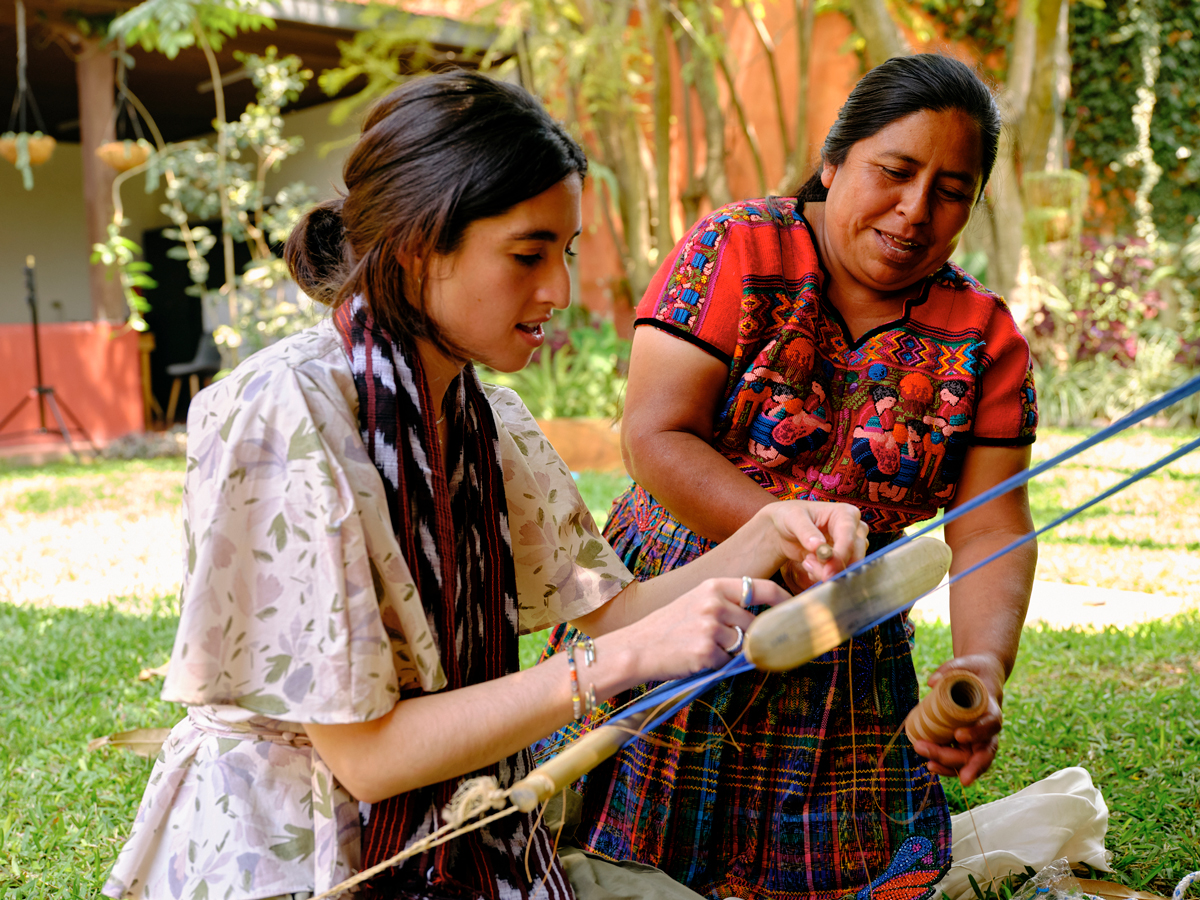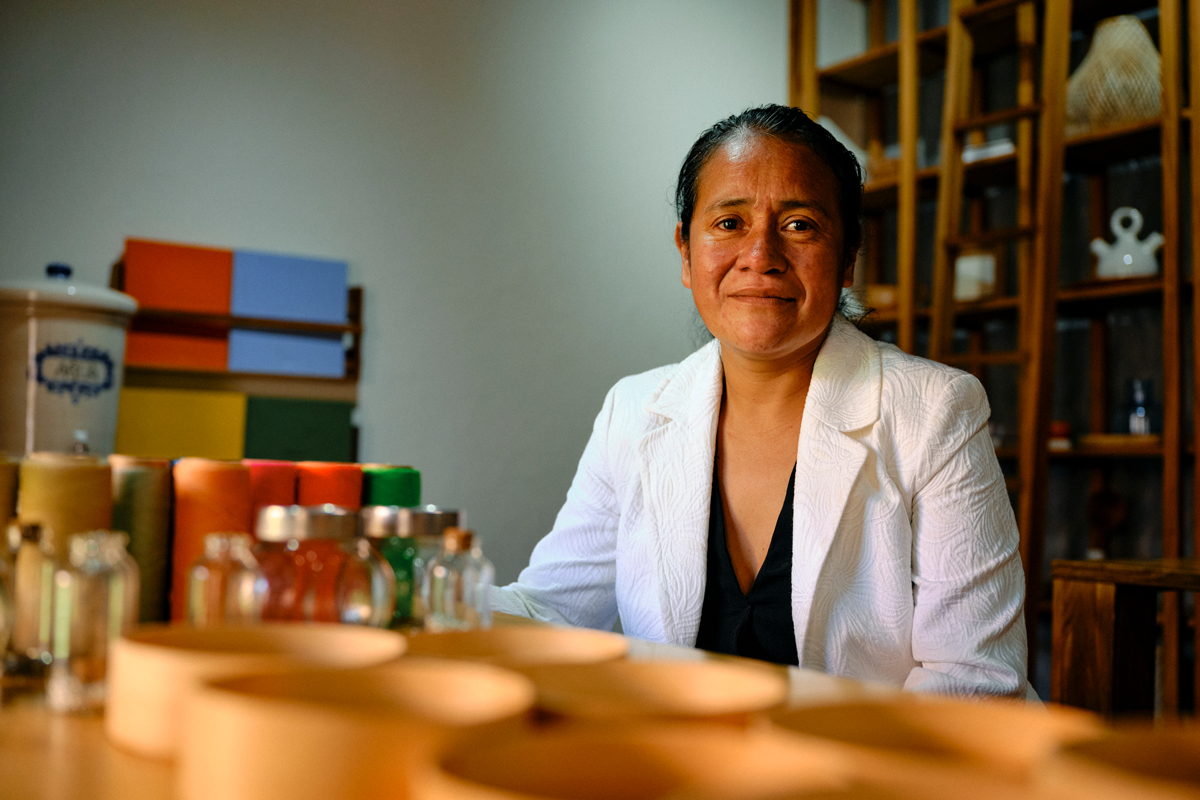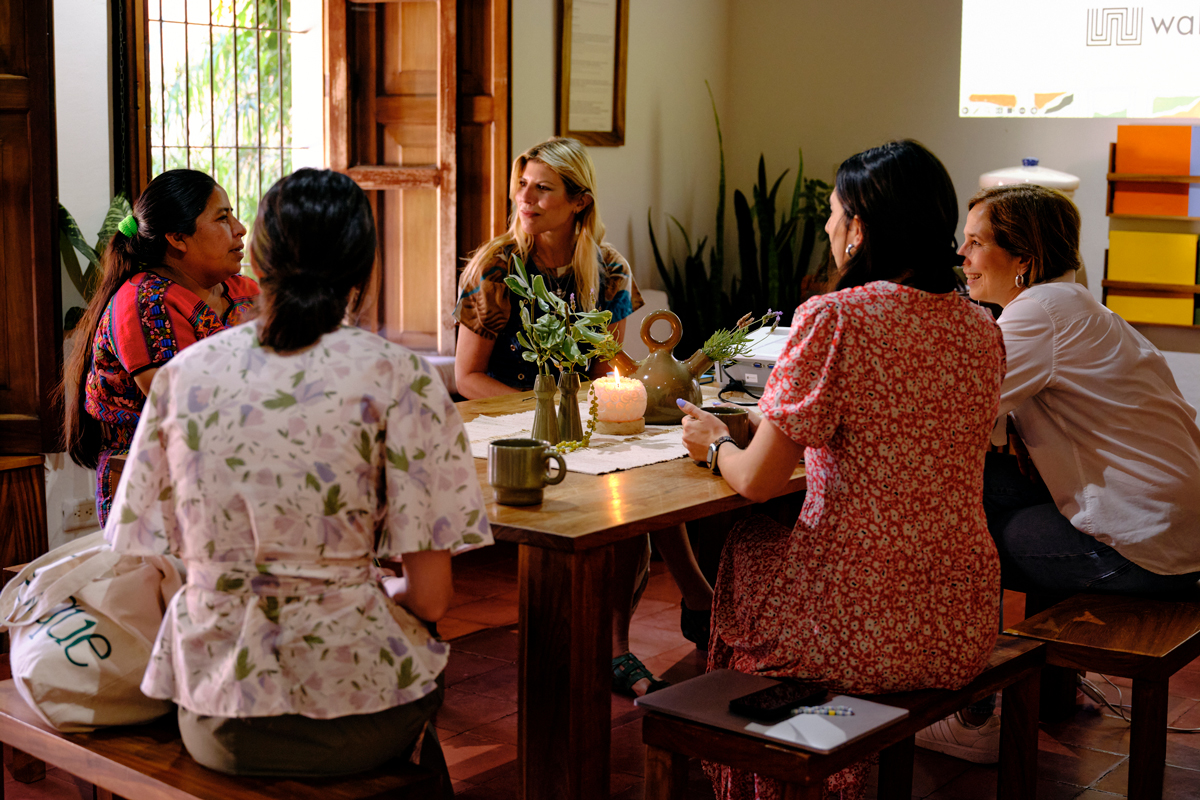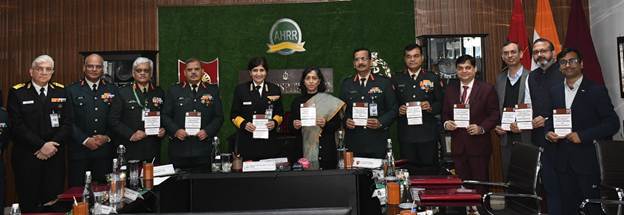
The FAO Mountain Partnership’s Fashion for Fragile Ecosystems project is an initiative that has enabled women in Guatemala to share their traditional weaves with a wider market and unlock new economic opportunities. © FAO/Charlie Quezada-Cohete Studio
Women in Guatemala are weaving new futures by blending heritage and fashion and driving economic and social change.
In Magdalena Milpas Altas, in central Guatemala, Marla Chanta, a 45-year-old artisan, is crafting more than artefacts – she is creating new opportunities for her family and community. As a young woman, Marla would have liked to become a secretary, but instead, traditional societal roles led her to focus on tending to the household and children.
In these mountain communities, men typically work in agriculture or migrate abroad to earn enough to support their families while the women remain in their villages, producing rich craftsmanship rooted in their cultural heritage. They excel in traditional weaving and sewing techniques and pass on Guatemalan traditional knowledge to the younger generation.
Recognizing these skills, Wakami, a social enterprise dedicated to uplifting rural communities in Guatemala, began working with the women of the community to provide them with opportunities for personal and economic growth.
Founded 20 years ago by Maria Pacheco, Wakami empowers rural Guatemalan women through sustainable business and education. Building on the women’s weaving abilities, Wakami started an initiative to help them generate income through handcrafted goods like bracelets. Their mission is to create cycles of prosperity for Wakami artisans, enabling them to improve their lives, and the lives of their families, while also protecting the environment.

Marla joined the organization 16 years ago, after the birth of her youngest child, a daughter. She wanted to provide her with a better future and make sure she had the opportunity to study.
Starting in 2023, the Mountain Partnership of the Food and Agriculture Organization of the United Nations (FAO) initiated a partnership with Wakami through the Fashion for Fragile Ecosystems project, an initiative funded by the Italian Development Cooperation. The project links the cultural heritage of women artisans in remote mountain communities with contemporary designs that are popular in today’s market.
The Mountain Partnership introduced Italian fashion designer, Vivia Ferragamo, to Wakami, and they worked hand-in-hand in 2024 to co-design a contemporary collection inspired by their local traditions, knowledge and culture.
Mountains are home to small artisan communities, often led by women, who produce high-quality goods with low environmental impact. However, isolation, limited market access and complex value chains often result in unfair compensation, forcing artisans to abandon their crafts, and endangering the loss of cultural heritage.
The Fashion for Fragile Ecosystems initiative creates fair work opportunities by partnering with global brands. By doing so, this FAO project not only boosts local economies but also preserves traditional craftsmanship and promotes sustainable practices, opening new markets and ensuring a liveable wage for artisans.
Cultural heritage and contemporary fashion
For Marla, earning her own income with Wakami over the years meant that her confidence soared.
“My life has been transformed morally, emotionally, and now I recognize that as a woman, I have value. The future of my daughters will now be different thanks to this opportunity,” she says.

As Marla observes, “The impact is that girls are now learning to value themselves and understand that, as women, they have worth in society. When women are given the opportunity to generate their own income, we transform the lives of our daughters through education.”
Marla is now participating in a new fashion initiative that involves producing clothing and garments. With support from the Mountain Partnership, Wakami and its artisans are now working to access new markets.
The collection created by Vivia Ferragamo and the Wakami artisans was unveiled at a fashion event in Guatemala City.
“Working with FAO and the Mountain Partnership has been an incredible opportunity to help these artisans share their beautiful work globally, creating fashion that looks good and does good,” says Ferragamo.
Fashion for Fragile Ecosystems is more than just a fashion initiative. It is a celebration of traditional craftsmanship and a platform that gives mountain artisans the recognition they deserve, inspiring the next generation. Recently honoured with an award from the Japan World Expo 2025, this project is an example of best practices in design for the future. Source:
The FAO News And Media Office, Rome
– global bihari bureau





